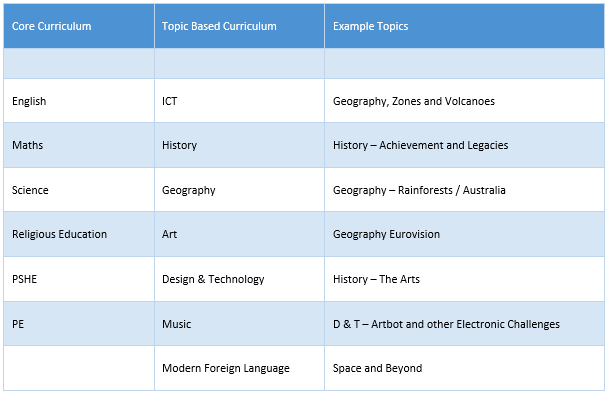Primary
primary introduction
In the Primary Classroom at Foundry, we support children who have been unable to maintain a placement in their local schools due to social, emotional, behavioural and/or mental health difficulties. Building positive relationships is fundamental to the work we do with the young children in our care and a considerable amount of time is taken to get to know each child personally, socially, emotionally and academically. We strive for each pupil to feel a sense of belonging as well as feeling respected, valued and believed in.
Meet the Primary Classroom Team
Miss Buckley
Miss Woodward
Mr Hammerstone
Mrs Eighteen
At Foundry, we recognise that children with us have experienced difficulties in responding to the day-to-day challenges of a mainstream school and therefore require a period of stability. They require personalised support to extend their range of emotional, social and behavioural skills and thus achieve appropriate learning outcomes. We strive to help pupils understand their behaviours and emotions, whilst teaching pro-social ways to express their feelings and manage their personal difficulties. We endeavour to support all children in developing the desired learning characteristics as well as the life-skills required to succeed in life beyond their time at Foundry.
Our ultimate aim is to help our children to become better equipped to move on and to ultimately succeed in a school setting appropriate to their needs.
Organisation and Planning
Our primary unit comprises: two teaching classrooms equipped with interactive white boards; a kitchen area in one classroom; a newly-installed sensory room; a calm space and an outdoor area.
As children join us in Primary, a calm and timely approach is taken to get to know each child. This induction process enables the staff to understand the children’s areas of strengths and identify their main areas of need, all of which underpins the bespoke curriculums which are then implemented to ensure that their time at Foundry is positive and valuable.
The Foundry Primary Curriculum is broad, balanced and challenging and reflects the needs, interests and abilities of our children, whilst providing as much curriculum coverage as possible.
At Foundry, we believe that subject knowledge is not learned in isolation and therefore teaching often combines curricular areas linked together by a common topic. This enables pupils to use and apply their knowledge and skills in a range of contexts, thereby encouraging pupils to become more reflective in their learning and develop their problem-solving skills. Our teaching methods recognise the need for pupils to acquire essential characteristics of good learners, such as independence, resilience and reflectivity. Staff at Foundry use a wide range of resources to support the curriculum delivery, which allows for a creative approach to learning. Our provision also incorporates off-site trips and visits to enhance the learning experiences of our pupils.
Primary Curriculum
Introduction
The Foundry Primary Curriculum is broad, balanced, relevant and challenging. It reflects the needs, interests and abilities of our pupils. It meets the requirements of the National Curriculum, using the Chris Quigley School Essentials, which allows for a creative approach to learning. Foundry recognises that some children require a period of stability, allowing them to acquire skills for learning and self-regulation strategies.
Our teaching methods recognise the need for pupils to acquire essential characteristics of good learners, such as independence, resilience and reflectivity. This is achieved by including areas such as Personal and Social Development and Health Education and by placing an appropriate emphasis on the development of communication, in its widest sense, across the curriculum.
Organisation and Planning
All pupils follow an induction process to produce baseline assessment material which provides pupils with a personalised learning journey, ensuring that their time at Foundry supports their educational and emotional needs. We use a range of assessment tools to inform teaching, for example:
- GL Assessment Spelling and Reading
- Lexia – Literacy and Reading
- Salford / Vernon
- ARE Assessments (eg Twinkle, Math’s Seeds) These assessments, which are repeated termly, allow teachers to formulate individual learning plans, and set smart, measureable, achievable and realistic targets. At Foundry, we believe that subject knowledge is not always learned in isolation and teaching therefore combines curricular areas linked together by a common topic. Where subjects are taught in isolation, links are drawn out and emphasised. Both methods enable pupils to apply knowledge, skills and understanding taught in one context in a new area, thereby allowing pupils to become more reflective in their learning and developing their problem solving skills.

We have a team of Behaviour Specialists who work in Primary and Secondary schools with teachers and pupils to provide support in school. Please click the link above to see their profiles.
Ofsted commented;
“You care deeply about the pupils and are determined to make sure that your school provides the nurturing environment that they need.”
“Pupils are happy at your school, they say that there is always someone to talk to and that their views are valued. Parents and carers praise the improvements in their children’s behaviour and attitudes to learning.”
“You and your team are acutely aware of the importance of ensuring that every pupil is safeguarded from harm.”
Foundry College
Budges Gardens
Wokingham
Berkshire
RG40 1PX
Tel: 0118 334 1510



